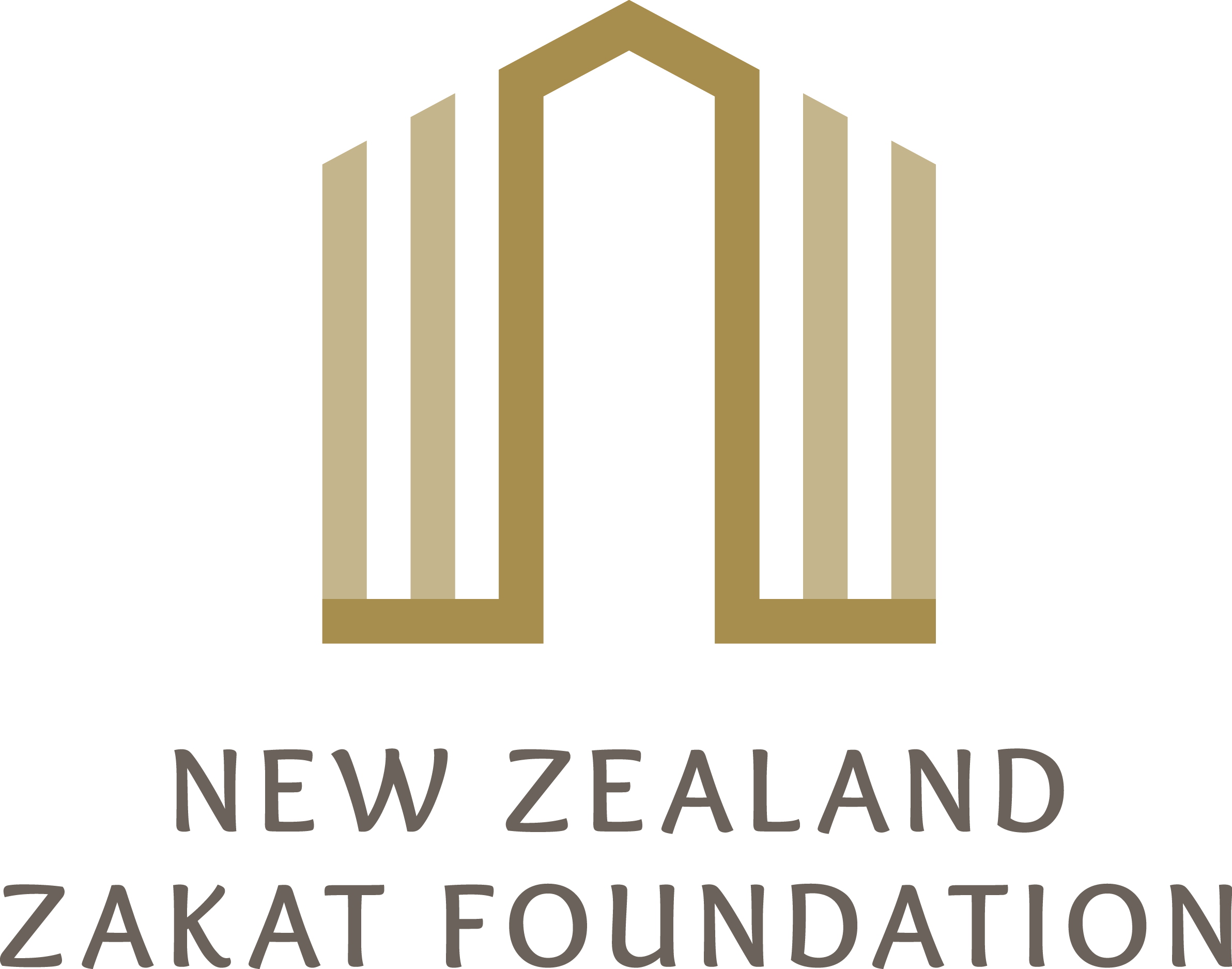Our Policy
Eligibility
Islamic Definition
The criteria for Zakat eligibility is outlined in the Quran as:
“Ṣadaqah (Zakat) is for the poor and for the needy and for those employed to collect
[Zakat] and for bringing hearts together [for Islam] and for freeing captives [or slaves] and for those in debt and for the cause of Allah and for the [stranded] traveller – an obligation [imposed] by Allah. And Allah is Knowing and Wise.” (Quran 9:60).
The above verse singles out eight types of people deemed eligible to receive Zakat. They have been identified as:
1. Al-Fuqara’ (The poor)
2. Al-Masakin (The needy)
3. Al-Amilina Alayha (Administrators of Zakat)
4. Al-Mu’allafah Qulubuhum (Reconciliation of Hearts)
5. Fir-Riqab (Those in Bondage)
6. Al-Gharimin (Those in Debt)
7. Fī-Sabilillah (In the Cause of Allah)
8. Ibn al-Sabil (The Wayfarer)
Our Focus
New Zealand Zakat Foundation’s eligibility criteria for Zakat complies with the Islamic
criteria, with an additional requirement that the applicant must be New Zealand based. This is to align with our objective to support the local community, lifting them out of hardships and thereby building internal community confidence and capability.
NZZF uses the following criteria:
1. The applicant must be Muslim and residing in New Zealand at the time of applying
2. The applicant must fill in the application form in full, including referee details
3. Zakat cannot be given to a Lote Tree board member or NZZF zakat committee member
4. The applicant must be in financial hardship. The committee will give more weighting to an application where the applicant in addition to being in financial hardship falls under more than one of the Quranic categorisations of zakat recipients, such as student of knowledge. For example, Al Fuqara and Fi Sabilillah.
The Board of Lote Tree and the NZZF Committee can set other areas of priority such as
single parents or Covid recovery support however these applicants will also need to meet the financial hardship threshold.
Referee
Every application must be supported by a referee. A referee for the purpose of a
valid application must be:
a. An imam
b. A financial mentor
c. A social worker
d. A community worker
e. A health professional
In addition to meeting the above criteria the referee must:
a. Not be a family member
b. Have a good understanding of the applicants circumstances
c. Be able to speak to the circumstances of the applicant
Debt Relief Applications
NZZF will only provide debt relief to applications for debt that is considered to be
unduly burdensome. This includes:
a. interest bearing debt
b. debt to family or friends that has become due and is causing relationship strain
Debt relief applications particularly those involving interest bearing debt, such as
overdrafts, credit cards, and personal loans must be supported by a financial mentor unless the committee deems the information provided by the applicant is sufficient to show that paying off the debt will result in a sustainable debt free financial future for the applicant.
NZZF may not support debt relief to debtors that offer favorable repayment terms without interest and penalties such as the Ministry of Social Development, Studylink,
or Te Whatu Ora.
Number of grants
Except in exceptional circumstances, NZZF will only make a maximum of two grants to each applicant per hijri year (Shawwal to Ramadan).
Committee
The Zakat Committee is responsible for assessing, approving, and distributing zakat funds to applicants who meet the eligibility criteria, can prove their need for financial assistance, and are verified by a referee.
Zakat Committee members must be part of the New Zealand Muslim community.
Distribution
NZZF prefers applicants to be working with social service providers. This is to ensure that applicants are receiving appropriate support.
We can accept applications directly from applicants.
NZZF follows the principles below when distributing zakat funds:
1. We do not take any admin fee to ensure 100% of the zakat is transferred to the beneficiaries.
2. Zakat should be distributed within one year of collection.
3. A service cannot be provided in the place of a Zakat payment.
4. The Zakat application will be assessed by the zakat committee, and if necessary, the Lote Tree Board.
5. All zakat applications must be assessed against the criteria set out by the committee.
Information Management
All Zakat information is stored in a private folder in our Lote Tree Google Drive. This
folder is only accessible to the Zakat Committee and the Lote Tree Board to protect the identity of applicants from Lote Tree employees and volunteers.
Accountability and Reporting
NZZF has multiple accountability measures to ensure zakat funds are distributed to those who are eligible by Islamic law and by our internal criteria. These are outlined
below.
1. Zakat donors are given a receipt for their payment during our end of financial year receiving process or earlier if requested or provided for through their payment method (such as Give a Little).
2. All decisions made about zakat applications are communicated to the Board, including the amount and a brief explanation about the applicant’s circumstance.
3. In complex cases, the Board is consulted for advice on how to proceed and the most appropriate decision or advice to give the applicant.
